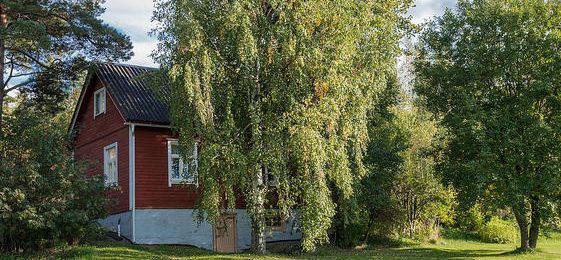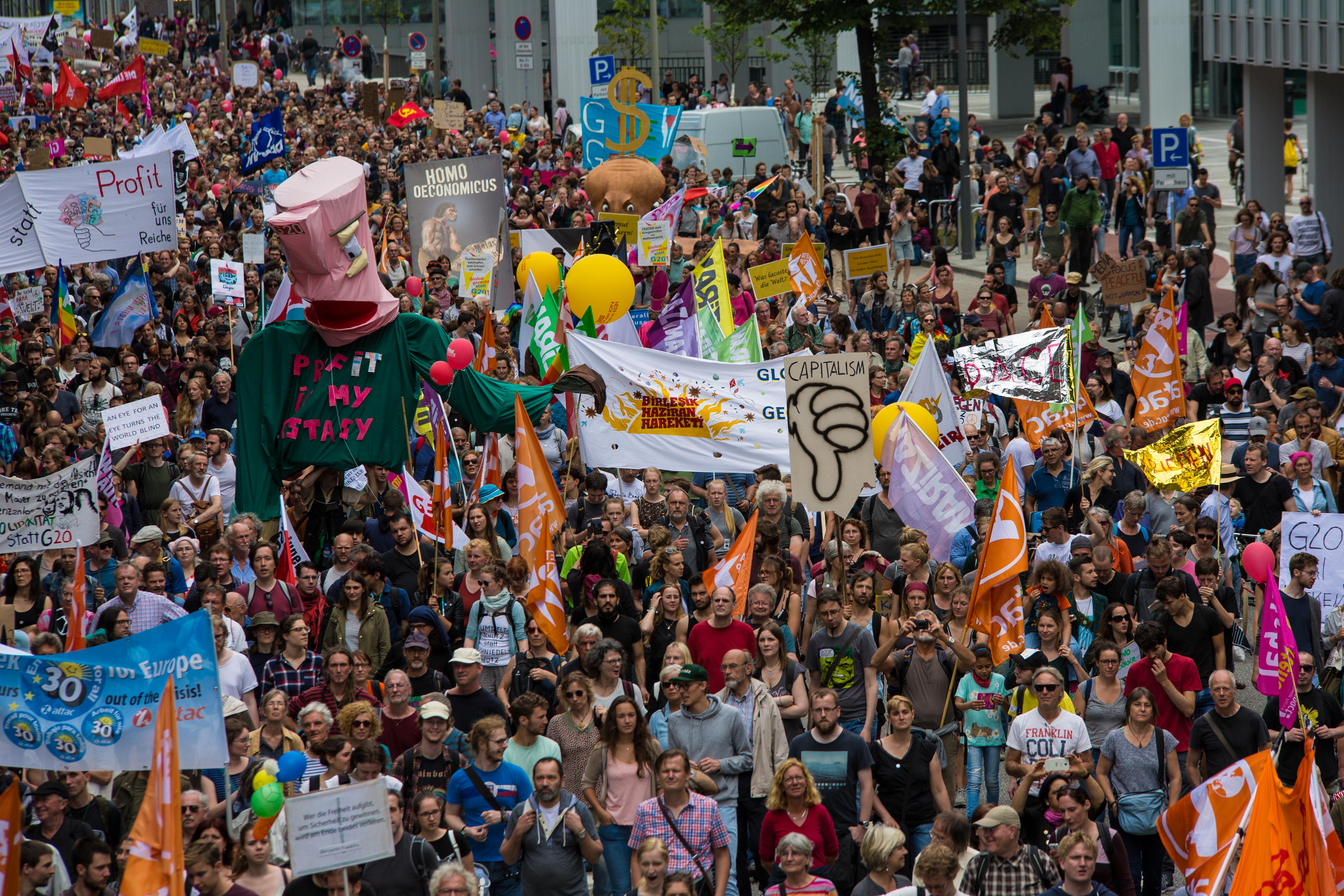From 30 August to 3 September Budapest will be under the banner of degrowth with two major degrowth-events: The degrowth week and conference. In order to give you some ideas on what to expect there, we´ve asked a few questions to the Degrowth 2016 organizing team:
We strongly felt that it was important to keep the next Degrowth Conference at a human and convivial size. This is both an issue of content (in how many events can you sensibly participate?) and infrastructure (how many people can reasonably work in the university premises?). It also became clear that - despite some shared interest - researchers and practitioners have different working and presentation methods and require different intrastructure . On the other hand academic conferences are not terribly exciting if you want to involve more local people and promote the degrowth concept and event in Budapest and the region.
We therefore decided to separate the academic conference in the strictest sense from everything else related to degrowth taking place in Budapest at the same time. In order to encourage overlap, the academic conference takes place earlier in the day, leaving the late afternoon time free for researchers to join various Degrowth Week activities around Budapest. At that time researchers and practitioners can come together for the evening plenaries or alternative events in other locations in the city.
The Degrowth Week also consists of activities that are innovative, alternative, different, provocative and therefore easier to promote regionally and to attract interest of the general public, whilst the academic Conference aspires to be an academic conference in the strictest sense of sharing latest research by people familiar with the field.
Just over 500 is not relatively few people. Professional experience shows that this is just about manageable for organisers and audience to achieve a high quality research conference. We wanted to primarily provide a forum for researchers and their practitioner colleagues to have space and resources to discuss their latest findings. The academic conference includes the Research-in-Action special sessions which present various practical activities grouped under a particular academic conceptual umbrella - whether it is alternative currencies, social enterprises, collectives, educational initiatives or biking tour reports - in total over 20.
It is also important to note that the costs of implementing the academic conference and a daily lunch for all participants is borne solely by the registration fees for the conference. So everybody who actively participates in the conference, for example by presenting a research paper has to pay to be there, which in itself creates unequal access for researchers from different countries. Nonetheless, it became obvious that, in addition to the roughly 400 active participants, there were people who did not have a presentation of their own, but still wanted to attend the morning keynote plenaries and research parallel sessions. In order to accommodate them while keeping the conference of convivial size we agreed to open up another 100 registration places for the academic conference and try to ensure a balanced mix of different world regions. And that is where it becomes crowded and seems like limiting admission to relatively few people. But it is simply hard to fit more than that into the lecture rooms available at the university.
Absolutely. The registered access academic conference consists of morning plenary speeches – also to be screened in other Degrowth Week venues around Budapest - parallel sessions at 11:30 and 14:30 and a lunch for participants in the university building. Also introductory speeches and the opening ceremony at the University are restricted to registered participants.
The Degrowth week meanwhile includes over 100 activities, mainly with free access or a voluntary contribution at the door, all over Budapest and even in farms outside the city. The aim is to place the bulk of Degrowth Week activities at the time of the day when parallel sessions finish, also allowing researchers from the academic Conference to join in. In the evening, keynote panels are open to registered and non-registered audiences alike and also screened to other more convivial locations around the city. On the last day there is both a joint action and a party in the evening for all.
The Degrowth Week is really everything you´d want from a degrowth conference if you don't have the patience to listen to some professors' latest academic paper and even without having to pay for it in advance. Also, the public programme of the conference, soon available online, will provide further information about authors and content also to those who don't attend the parallel sessions, so that they can contact and relocalize as they see fit.
It is really hard to say, maybe over 1000, although again sensible limits of how many people certain buildings or visiting sites can safely take in will have to apply. Let's all be mature and sensible about what we are trying to achieve here: despite an accent on conviviality degrowth is not some crazy party. We are trying to provide a space for varied researchers and practitioners, keen learners and experienced teachers of the sustainable, the just and the new to come together and exchange ideas. But we are also trying to encourage people to take the contents of the Budapest events and relocalize, organise parallel events meaningful to their local community at home and devoid of unnecessary travel. We will try to put as much online as possible. For those who do decide to come to Budapest there will be enough learning and enough fun to make it worthwhile, we trust.
All the keynote events of the conference will be screened to locations of Degrowth Week around the city, and we are working on establishing also some feedback between these screening locations and the main plenary hall. But again, let's bear in mind that there is only so much that can be done in a 90min event. Learning and conviviality with other members of the audience is as important as picking an argument with the renowned lecturer. We are planning to open the evening plenaries to visitors of Degrowth week also, but it will have to be on some first-come first-served basis as again lectures halls can only take a few hundred people. So the only events of the conference that visitors of Degrowth Week don't have access to are parallel sessions at 11:30 and 14:30 and the catered lunch. These are really traditional academic events which require manageable size and certain format of work which is hard to achieve with more than 40 people per session.
Finally, it is important for us to note that we are a team of volunteers endeavouring to put on a meaningful event for a part of the vast global degrowth community in September 2016, deliberately working with limited resources in order not be defeating our own purpose. We are not professionally hired managers servicing clients of various 'events', although we are sometimes stuck with such tasks.

We all use models in daily life to explain our environment. An example: I assume that a tree will grow provided it has sufficient water, nutrients and sun. I am using a simple model here, without understanding the nitty-gritty – what exactly happens in the roots, stem, leaves and cells. Thinking in models is not only useful to understand our world, but also to solve problems. Let’s assume the ...

Was tun, wenn sich die Staats- und Regierungschefs der 20 reichsten Länder der Welt in einer europäischen Großstadt einfinden, um ihre ungerechte Politik in Szene zu setzen? Dieser Frage haben sich zahlreiche linke Organisationen seit letztem Jahr gewidmet. Herausgekommen ist eine bunte Mischung an Protestformen, verteilt über eine Woche. Leider geht die Debatte um den G20-Gipfel aktuell weder ...
By Lyda Fernanda Forero There is an increasing consensus on the need and urgency to tackle climate change and its consequences. This consensus is reinforced by the human and environmental disasters (tragedies) that occur every year due to extreme climate events, such as the typhoons of growing intensity including Haiyan(2013) in the Philippines or the hurricanes that devastate Central America....